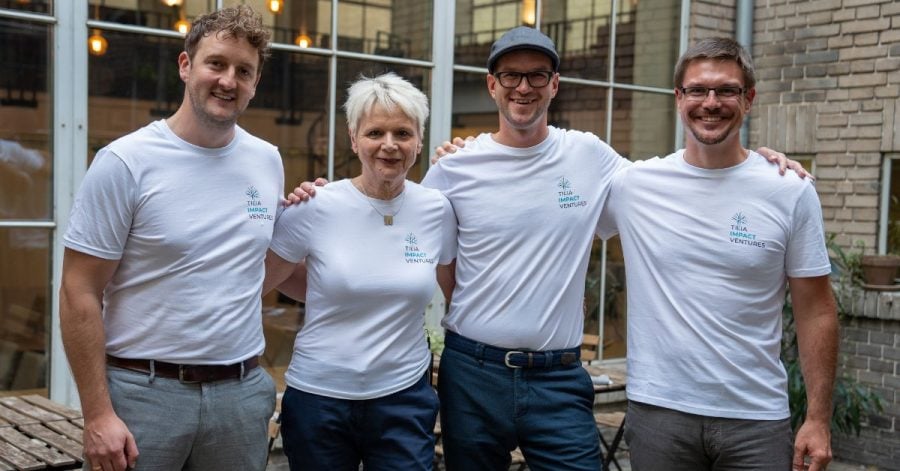Only have 1 minute? Here are 3 takeaways from the piece:
• Czech impact VC Tilia launched its €32 million second fund with the aim of supporting CEE companies with a ESG focus.
• The second fund is financed by the European Investment Fund (EIF) through the InvestEU programme, as well as Česká spořitelna Bank.
• Czech business leaders that have supported the fund include RSJ’s Libor Winkler, LINET’s Zbyněk Frolik, Credo’s Ondřej Bartoš, Pale Fire Capital’s Jan Bárta, Siko’s Tomáš Vala, and Benefit Plus’ Václav Kurel among others.
Founded in 2018, Tilia Impact Ventures inaugural fund already made investments that tackled issues ranging from countering food waste, such as Hungarian startup Munch, Czech B2B waste marketplace Cyrkl, or Polish micro school platform The Village.
The team behind Tilia II unites seasoned experts from diverse backgrounds, including venture capital, investment funds, foundations, social entrepreneurship, and tech entrepreneurship.
“Systemic change is the key concept for us. We are investing in technologies and business models which can transform entire industries and systems, rather than only bringing temporary benefits. We communicate our verticals as PEOPLE & PLANET. The planet part is climate but the people part is wider than just EdTech, and we are also looking at healthcare and social inclusion”, Andrew Gray, general partner at Tilia, tells The Recursive.
The focus areas encompass climate and sustainability, where they work towards decarbonizing energy grids, advancing electric transportation, sustainable food production, nature conservation, industrial sustainability, and pioneering innovative solutions for carbon reduction and circularity.
Additionally, Tilia will be looking to promote education and training through EdTech initiatives, addressing employability challenges, and bridging skills gaps. Another area of focus is social inclusion and civic empowerment, as well as creating employment opportunities for marginalized communities while advancing transparency and civic engagement.
“Our region is long known for its technical talent. But more recently we are seeing a wave of entrepreneurs who are putting their minds towards solving some of the most pressing environmental and social challenges of our time. We are glad to be able to offer patient capital, guidance, and a network to propel these founders on their journey to make global change,” general partner Petr Vitek said in a statement.
50 percent for the Czech Republic, 50 percent for the wider CEE region
According to Gray, 50 percent of the fund will be invested within the Czech Republic, while the other half is going to be focused on the wider CEE region, including the Balkans.
“Focus countries are Slovakia, Poland, Hungary, Romania, Austria but also the Balkans and the Baltics opportunistically. Bulgaria, for example, seems to be a country which we are building great relationships with and seeing a nice deal flow from,” Gray tells The Recursive.
While the initial fund served as a test to determine the viability of impact investments capable of delivering both financial profit and meaningful societal change, Tilia II will now have the full resourcing to support new and exciting solutions coming from the region.
“The focus of the first fund was mainly local but we only just started branching out at the end of the fund. The initial investments of the fund were more like concessional capital – mezzanine loans on favorable terms which weren’t intended to make large returns,” Gray points out.
Regarding Tilia’s expectations, Gray notes that aside from the fact that during the past 18 months there has been a downturn in the startup funding landscape, there is still a silver lining for future investments.
“I am somewhat thankful that we have moved away from the unsustainable chaos of 2021 with the market resetting. This means we can take more time to get to know founders and to reset valuations to more sustainable levels. However, climate tech in particular is just exploding in Europe. There is a lot of capital, public support, and most importantly talent coming into the space.” Gray concludes.








